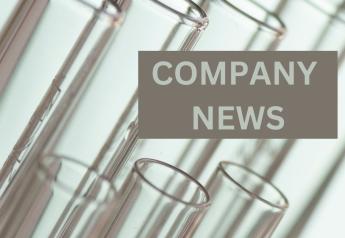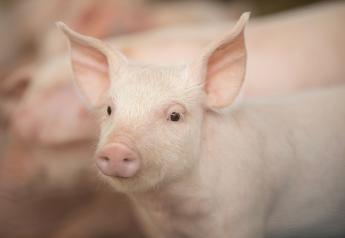Advice For All Farmers: Lead From Where You Are

While Missouri Dept. of Agriculture director Chris Chinn didn't start out looking to policy work, she understands the importance of being able to communicate to various groups of people. Before entering public service, she focused on connecting with consumers on her personal blog and social media to educate others.
She believes farmers need to find a way to put a face on their farms. That’s what helps them connect with other farmers and, especially, the public. “You don’t have to have a title to be a leader,” she says. “Much of the advocacy I did was from where I was in Clarence, Mo. I was just ‘Chris Chinn, farmer.’”
Dairies and cattle farms have it a bit easier in terms of inviting school groups to their farms, but all farmers can find ways to get involved in their communities, she advises.
Several years ago, Chinn and her family did a virtual tour of their hog farm and posted it on YouTube. “We explained to viewers that our barns weren’t hiding anything. We just wanted to protect our hogs from germs. Once people realize that’s why we’re farming that way, they’re okay with it,” she says.
Listen In
Early in her TV reporting career, “U.S. Farm Report” host Tyne Morgan interviewed Chris Chinn to help tell agriculture’s story after negative perceptions of concentrated animal feeding operations were voiced in the state. Earlier this summer Morgan and Chinn recounted the backlash from those early TV interviews and discussed Chinn’s new role. Listen to “No Man’s Land” podcast.
Chinn says other things you can do to help fight misconceptions include PowerPoint presentations and posting pictures of your farm on social media so people can see what your barns look like.
With new technology options, such as social media, Skype and FaceTime, it makes it easier to connect with people.
“I do miss seeing my family every day,” Chinn says. Thanks to technology she talks to her husband and kids every day, and it keeps them close. “I love what I’m doing and they support me. I feel like I am making a difference for farmers all across the state of Missouri by being their voice, so I know what I’m doing is very important.”
Learn more about Chinn's work at the Missouri Department of Agriculture below:
This is the third story in three-part series. Read:
-
From Policy Taker to Policy Maker
-
Stepping up to Tackle Challenges Farmers Face
-
Advice For All Farmers: Lead From Where You Are







